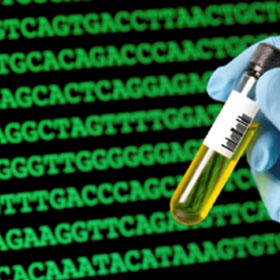EURORDIS to involve patients in RD-Connect project linking rare disease data sources
 1 November 2012 not only marked the official start of the RD-Connect project, but the beginning of a new frontier in rare disease research in which patients can be equal partners. In the process of shaping practices for new technologies that impact other fields of research and medicine WE NEED YOU!
1 November 2012 not only marked the official start of the RD-Connect project, but the beginning of a new frontier in rare disease research in which patients can be equal partners. In the process of shaping practices for new technologies that impact other fields of research and medicine WE NEED YOU!
EURORDIS is one of 27 full partners in RD-Connect, a new six-year project recently launched as an integrated platform connecting databases, registries, biobanks, and clinical bioinformatics for rare disease research. EURORDIS is active in many facets of the project and thus has many opportunities to reflect the voice of patients throughout the various activities of the project.
Funded by the EU Seventh Framework Programme under the International Rare Disease Research Consortium (IRDiRC), RD-Connect will develop a global infrastructure for sharing outputs of research projects, starting with the EURenOmics project focusing on the causes, diagnostics, biomarkers, and disease models for rare kidney disorders, and the Neuromics project that will use next generation whole exome sequencing to increase genetic knowledge of rare neurogenerative and neuromuscular disorders. The RD-Connect project supports the overarching IRDiRC goals of developing the means to diagnose all rare diseases and producing 200 new therapies by the year 2020.
Opportunities for patient involvement exist in each of the RD-Connect project work packages. EURORDIS will strongly contribute to the preparation and delivery of educational materials and to the consultation of RD patients on issues related to the research on “-omics” (learn more) and the linkage of patient data across different infrastructures and across borders. Because of its direct involvement in ongoing projects supporting the development of biobanks and registries, EURORDIS will contribute to RD-Connect work packages focusing on these types of infrastructures. Finally, EURORDIS will ensure interaction and coordination of the RD-Connect network with other initiatives within and beyond Europe and the dissemination of the RD-Connect project outcomes at the international level.
 During the 24 January RD-Connect kick-off meeting in Barcelona, EURORDIS organised a panel discussion with researchers to get specific ideas on how to best involve patients in the project in a meaningful way. One area soon to be exploited involves getting patient feedback on the new era of medical research that technological breakthroughs have made possible. Cutting-edge scientific advancements raise many practical and ethical questions. In coming months, patients will be asked for feedback on issues such as incidental findings, data ownership, data sharing and privacy.
During the 24 January RD-Connect kick-off meeting in Barcelona, EURORDIS organised a panel discussion with researchers to get specific ideas on how to best involve patients in the project in a meaningful way. One area soon to be exploited involves getting patient feedback on the new era of medical research that technological breakthroughs have made possible. Cutting-edge scientific advancements raise many practical and ethical questions. In coming months, patients will be asked for feedback on issues such as incidental findings, data ownership, data sharing and privacy.
For more information contact Anna Kole (anna.kole@eurordis.org)
Author: Louise Taylor, Communications and Development Writer, EURORDIS
